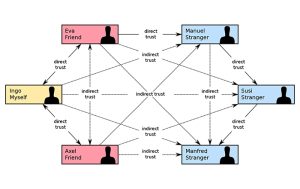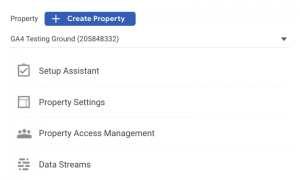Learning about SEO is something that every marketer, blogger or business person trying to advertise their brand needs to do. SEO is one of the most important segments of digital marketing and without it, you can’t expect great results. This is why more and more people try to master the art of writing SEO friendly content and using this technique to rank higher on Google.
Despite best efforts there are still many common SEO misconceptions. This article will break down the 6 most common mistakes and teach you how to do the right thing instead.
Let’s take a closer look.
1. A Bad Keyword Strategy
If you know anything about SEO, you know how important keywords are. Choosing the right keywords and placing them inside your content properly is the basic SEO skill you need to have under your belt.
But, there are several mistakes that you need to eliminate from your keyword strategy:
- ignoring keyword research tools
You can’t just guess which keyword performs best. You need to do thorough research using the right tools such as SEMrush or Google Keyword Planner. - going for the global, broadest keyword
Unless you’re a world-famous digital marketing agency, you can’t expect to rank highest for the keyword “chocolate.” But, you can aim for something more specific, like “dark chocolate for boosting immunity.” - keyword stuffing
Don’t just turn your content into a keyword listing. It will damage your SEO and increase your bounce rate. - keyword cannibalization
Don’t fight for the same keyword on multiple pages of your website. Instead, invest all your efforts into a single keyword on a single page.
It’s not that hard to conduct proper keyword research and placement.
2. Content & Keywords Disagreement
You must remember that SEO isn’t just supposed to satisfy the Google algorithms. It’s also supposed to make the readers happy and give the value they’re looking for.
With that in mind, you need to avoid making the following mistake:
- Using a keyword that doesn’t match your content
- Tricking people into thinking they’ll get an answer to a question
- Disappointing your readers with poor content
You only have one shot to make a great first impression. If you fail to do so, you’ll lose members of your target audience forever.
Make sure that your keywords match your content.
3. Poor Title Tags & Meta Descriptions
Your title tags and meta descriptions will either make you or break you.
It’s the first thing that a potential reader sees when they get those search results. They see a title and a mini description beneath.
Both of these need to be:
- unique
- descriptive
- specific
- attention-grabbing
- informative
Disregarding the importance of title tags and meta descriptions will cost you a lot of website visitors. Invest the effort into writing compelling and unique title tags and meta descriptions.
4. Ignoring Mobile Devices
Mobile devices have made a revolutionary breakthrough during the last couple of decades. Smartphones and tablets are taking over the lead in web searches and you have to adjust to the new situation.
Ignoring mobile devices is like saying no to 50% of your visitors. If you don’t create mobile-friendly pages, Google will recognize them as unfriendly for those searching from such devices.
To make it right, just go ahead and:
- Optimize your design for all types of devices
- Create mobile-first designs
- Test for different screen sizes
Create pages that are equally stunning on every device and you’ll be doing yourself a huge favor.
5. Adding Poor Links
Link building is important, but only if it’s done properly. If you focus more on the number of your links, rather than the quality, you’ll be harming your content.
Link building is supposed to:
- Get your visitors to spend more time on your website (internal links)
- Give them a chance to further their research (external links)
- Help Google understand what your content is about
If you just stuff your content with links, you might confuse the readers and the algorithms. Instead, focus on using fewer links but make sure they link to credible resources or relevant web pages.
6. Writing Poor-Quality Content
Finally, to make sure your content is SEO friendly you need to ensure it provides the value for your readers.
That means that you have to write and publish content that is:
- high-quality
- informative
- supported by data, facts and statistics
- rich in visuals and infographics
Final Thoughts
It takes time, energy and dedication to master the art of writing SEO friendly content. By learning about the most common mistakes to avoid, you’re improving your knowledge and polishing your skills.
Use the list above to remember what to focus on and how to stay on the right track. Keep working on your skills and you’ll soon be able to feel the results of your hard work.
Digital & Social Articles on Business 2 Community
(22)
Report Post





